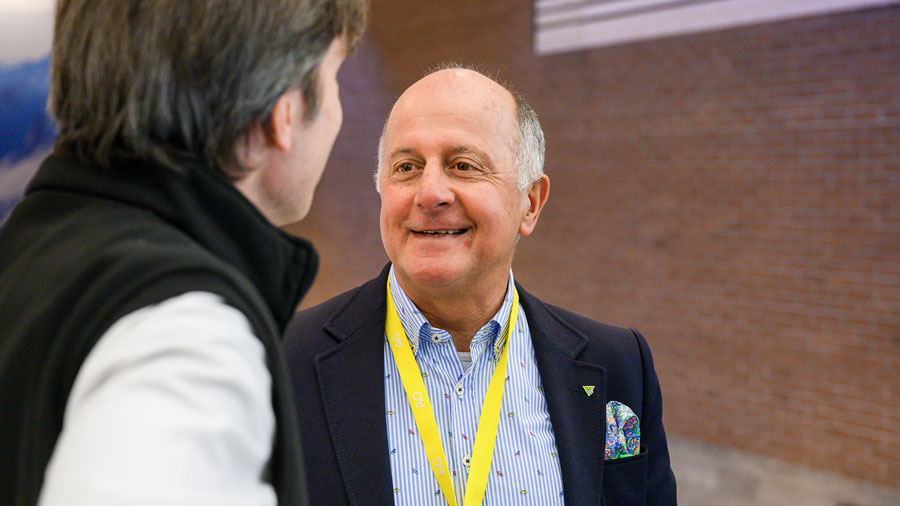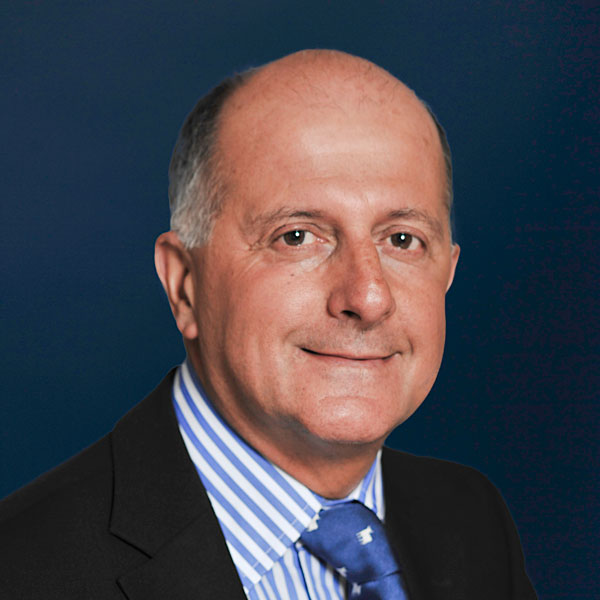Voices for change: Celebrating diversity within the AO

Currently, Quintero is professor emeritus in the department of orthopedics and traumatology at Hospital Universitario Clínica San Rafael in Bogotá, Colombia. Quintero grew up in Colombia as one of eight children. His father was an orthopedic surgeon and a pioneer of the Colombian Society of Orthopaedic Surgery and Traumatology.
“I grew up in this big family and we all studied at the private German school in Bogotá, so I had studied German since kindergarten. We had no other connections whatsoever with German people, but it was a good school and our parents decided we should all be educated at the German school,” Quintero explained, noting that there was no indication during his primary school education that he was bound for a career in medicine.
“I was very bad with math and abstract thinking: I preferred biology and more creative fields,” he said. “[But] my father was very well known, and I liked what he did as a surgeon, and I became interested in general surgery.”
In the late 1970’s, when Quintero was a medical student, his father mentioned that a new group in Switzerland was innovating and applying groundbreaking internal fixation techniques.
“He gave me a second-edition copy of The Manual of Internal Fixation: Technique Recommended by the AO-Group, written by AO founders Maurice E Müller, Martin Allgöwer, and Hans Willenegger, in French. I was looking at the pictures and I said, ‘Wow!’ I saw these fractures, the internal fixation, and the patient starting to move the limb just a couple of days after surgery,” recalled Quintero. “In those days, most patients with fractures just laid in bed, either in a cast or in traction. This book was absolutely amazing. I was so impressed that I switched to trauma and orthopedics—and bone surgery.”
A chance meeting
In 1983, during his residency in Brazil, a chance meeting with Willenegger set Quintero on his path to an AO Fellowship, membership, faculty appointments and—ultimately—his 2012–2014 term as AO President.
“Willenegger was visiting the hospital where I was training and my boss said, ‘You will sit with an important professor at the restaurant because you speak German.’ I said to myself, ‘Wow, I am sitting with professors,’” Quintero recalled.
Willenegger was soon peppering him with questions: “Why are you here in Brazil when you are from Colombia? Why do you speak German?” By the end of lunch, Willenegger had opened an important door for him.
“He said, ‘We have fellowships in the AO,’ and he encouraged me to apply for a fellowship in Germany because I speak ‘high German,’” said Quintero. “He opened not only the door, but the gates. When I was in Germany for my AO Fellowship, Willenegger phoned me every week. He invited me to Basel and truly was a sponsor and a mentor, but I was not aware of that until many years later.”
These days, such relationships are more conscious, with mentees actively seeking mentors, Quintero said—and that’s exactly the advice he gives to people facing barriers to realizing their goals.

“Today, we have a new generation of surgeons—male and female—emerging and we need to work with them to build up this new culture of diversity, inclusion, and mentorship across the AO.”
Jaime Quintero
‘Find a mentor’
“Find a mentor and start a relationship. Your mentor doesn’t have to be someone in your clinical specialty. I had two or three mentors when I was in medical school and none of them were orthopedic surgeons—and that was great, because real mentorship is not only about your clinical specialty,” Quintero said. “It’s about life and nonclinical competencies, and that’s the context of the AO Access Mentoring program: developmental mentoring based on nonclinical competencies that will help you boost your career and your personal development.”
But mentorship is just one facet of AO Access, he said, pointing out that the initiative includes diversity and inclusion as well.
“The AO historically has been diverse in terms of its multispecialty orientation, the founders’ languages, and the locations of their hospitals,” Quintero said. “Today, we have a new generation of surgeons—male and female—emerging and we need to work with them to build up this new culture of diversity, inclusion, and mentorship across the AO.”
‘It takes time to change old habits’
Culture change is rarely easy or fast, he said, but it is essential. While the AO Access Steering Committee is entrusted with driving diversity- and inclusion-related cultural change across the AO, Quintero believes everyone can play a role. For example, he said, microaggressions— indirect, subtle, or unintentional discrimination against members of a marginalized group—should be quickly addressed.
“You need to have a conversation with both the person who committed the microaggression and the person it was committed against—not in front of the whole group, of course,” he said. “But having a conversation is where you start. In my hospital, where I started a leadership and mentorship program for the department of orthopedics three and a half years ago, we have internal processes for reporting these incidents.”
On the AO Access side, Quintero said he believes the AO is becoming more diverse and inclusive but cautioned that it’s not an overnight process.
“We are three years into AO Access, but culture change takes time. We need more time to measure and see the results. It takes time to change old habits and ways of thinking, to be more diverse and more accepting of people who may be different from ourselves,” he emphasized. “Having some ‘boys’ clubs’ is human and normal: I like to see my buddies. The problem is that sometimes a small ‘all boys’ club’ may decide who is going to get which opportunities in the AO—opportunities to become faculty, for example. These are the things we have to change.”

“The world is changing very quickly and we have to keep pace with the speed of transformation—and that means opportunities to join and benefit from the AO should be fair”
Jaime Quintero
‘Trying to change the picture’
Quintero points to the annual group photo of the AO Assembly of Trustees to make his point.
“Let’s have a look at the AO Trustees photo. I’m worried about this photo because it’s 100 males and one or two women,” he said. “But we are trying to change the picture.”
Empowered to drive such change and reporting to the AO Foundation Board (AO FB), the AO Access Steering Committee—with its connection to the AO clinical divisions through their community development commissions, specifically the chairpersons as AO Access Liaisons—is uniquely positioned to drive the necessary culture change, Quintero said.
“We should not reinvent ourselves, but the world is changing very quickly and we have to keep pace with the speed of transformation—and that means opportunities to join and benefit from the AO should be fair. If we want to be sustainable for the future, we have to be very close to the younger generations of surgeons and understand how they think—and not force them to think or behave as previous generations have thought or behaved,” he said. “This is something I very strongly believe—not only with AO Access, but at all levels in our practice. Inspired by AO Access, I started a leadership and mentorship program in my own hospital. And I know the road is long.”
You might also be interested in:
- Reading the complete voices for change series
- Joining the AO Access Mentorship Program
- Listening to the AO Access to success podcast

